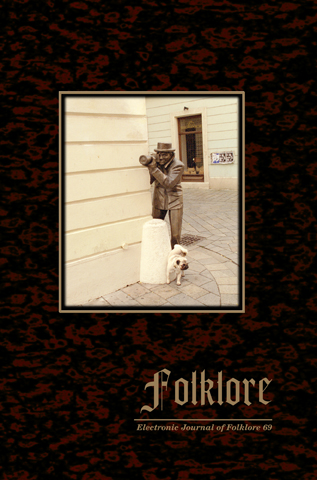The Beast Computer in Brussels: Religion, Conspiracy Theories, and Contemporary Legends in Post-Soviet Culture
The Beast Computer in Brussels: Religion, Conspiracy Theories, and Contemporary Legends in Post-Soviet Culture
Author(s): Alexander PanchenkoSubject(s): Cultural history, Customs / Folklore, Cultural Anthropology / Ethnology, Culture and social structure , Transformation Period (1990 - 2010), Post-Communist Transformation
Published by: Eesti Kirjandusmuuseum
Keywords: conspiracy theory; contemporary Christian eschatology; contemporary legend; emotional communities; meme theory; post-Soviet culture; the Beast of Brussels;
Summary/Abstract: Conspiracy theory is a powerful explanatory model or a way of thinking, which influences many cultural forms and social processes across the contemporary world. Recent academic research into conspiracy theories provides a set of interpretations ranging from medicalization (social/political paranoids) to the concept of ‘popular knowledge’ as a specifically postmodern phenomenon. In modern and postmodern societies, conspiracy theories often motivate political action and social praxis, accompany the transformation of institutional and informational networks, and provoke moral panic and changes of identity. The paper deals with the role of conspiratorial motifs and themes in the formation and transmission of what is known as contemporary legend. The discussion of empirical data focuses on apocalyptic narratives about ‘the Beast of Brussels’. Proceeding from the memetic approach in folklore studies as well as the concept of emotional communities, I try to show how and why present-day conspiracy theories and practices of conspiratorial hermeneutics are inspired by particular combinations of emotional, moral, and epistemological expectations.
Journal: Folklore: Electronic Journal of Folklore
- Issue Year: 2017
- Issue No: 69
- Page Range: 69-90
- Page Count: 22
- Language: English

